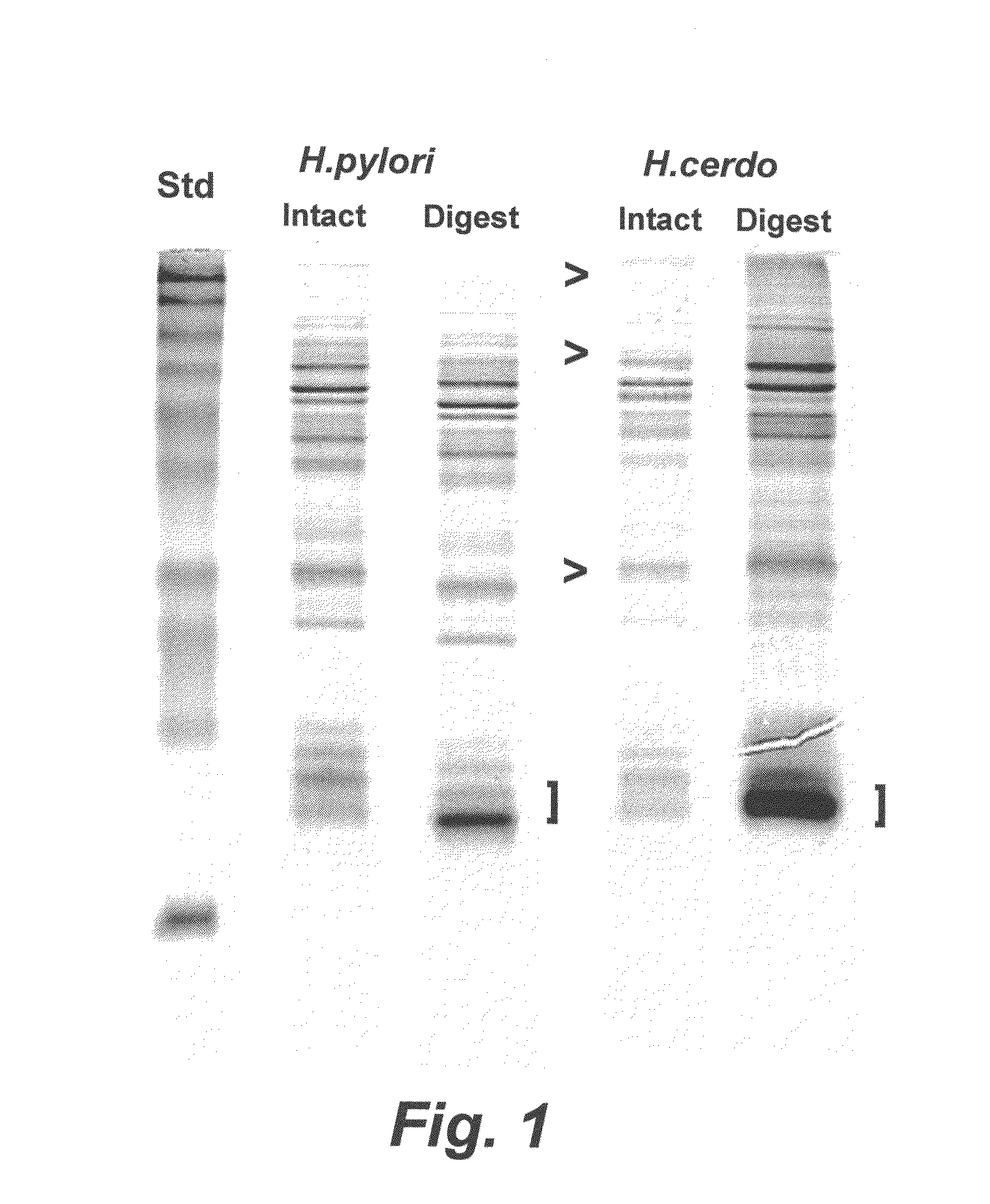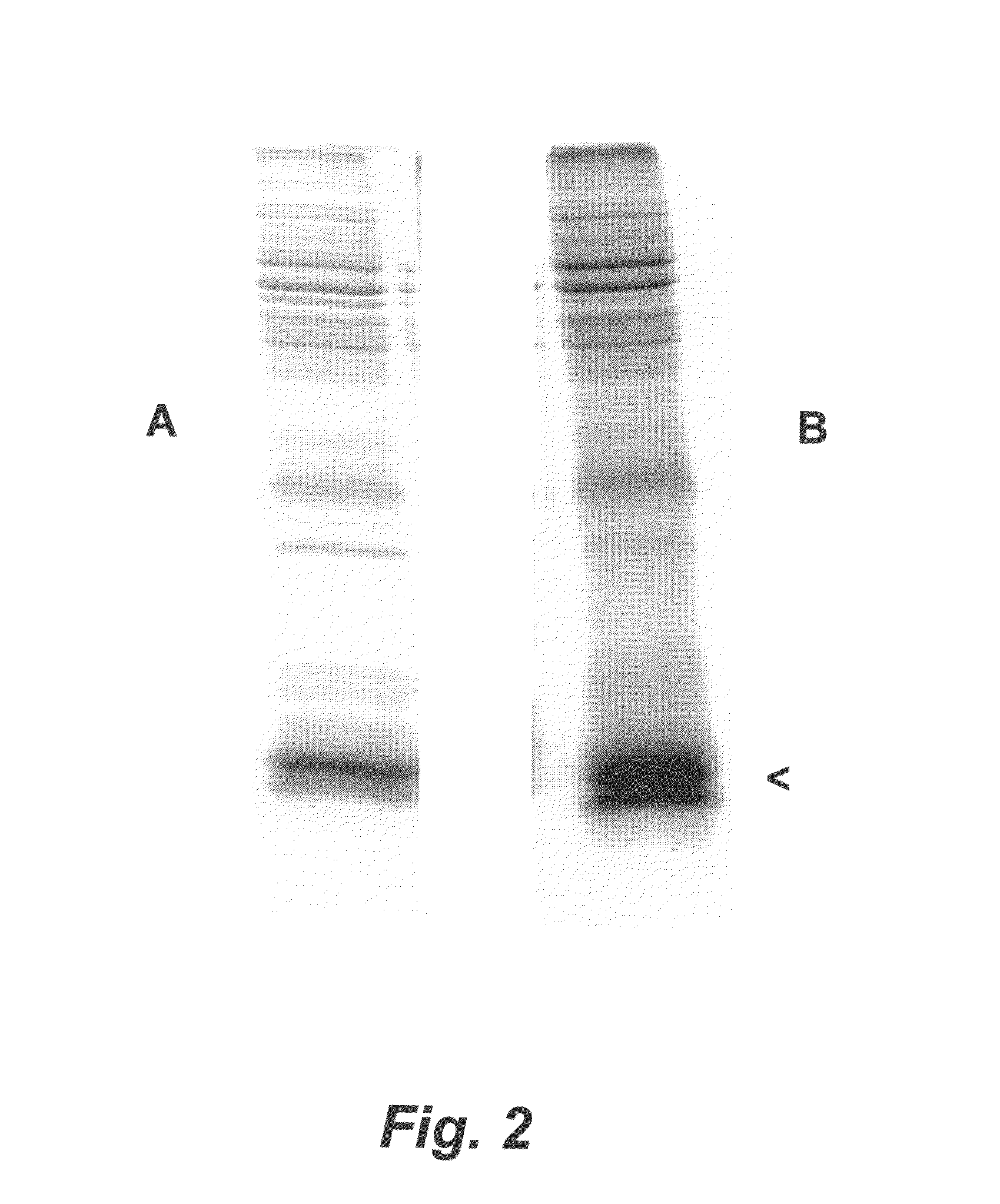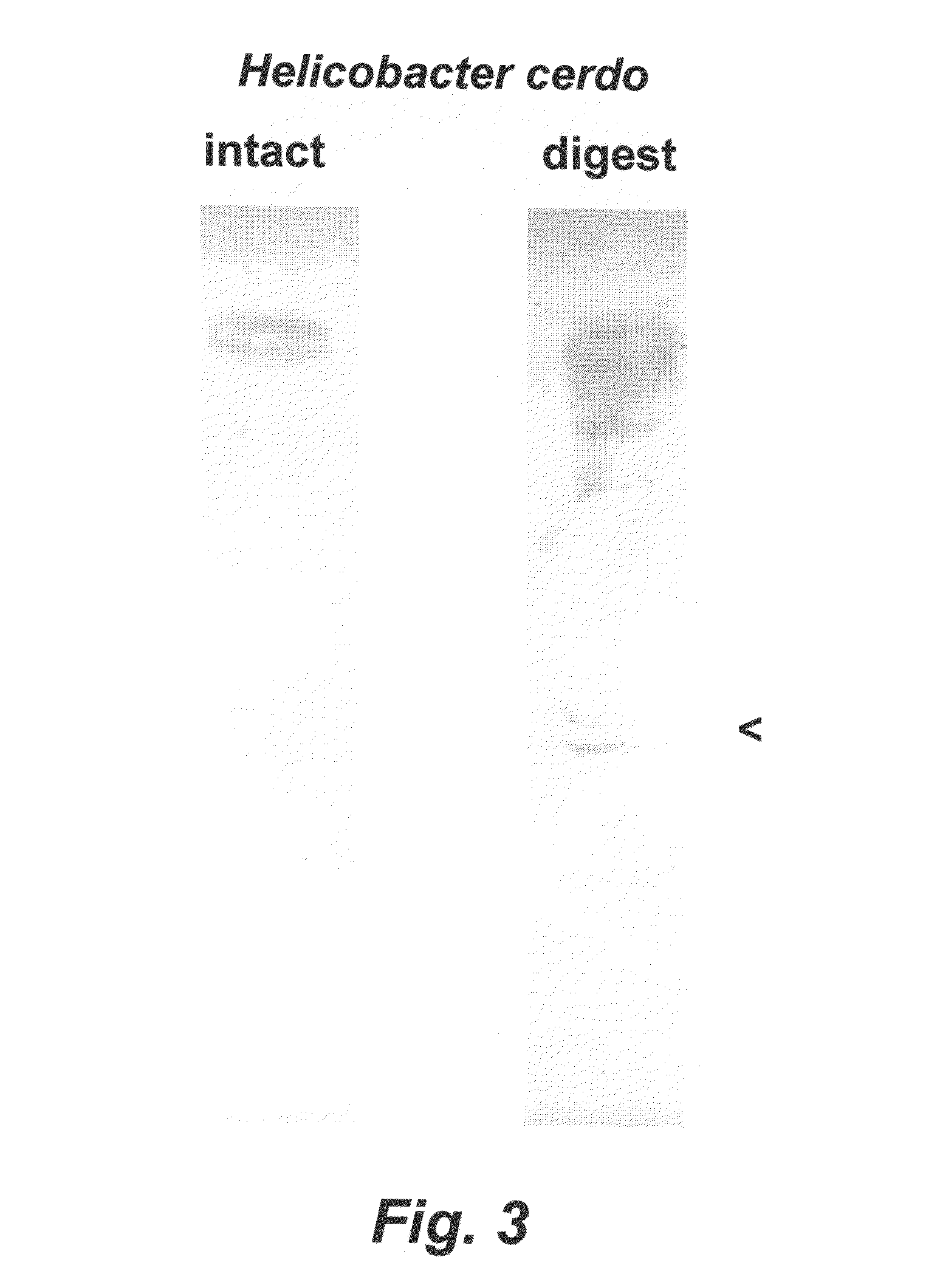Porcine Helicobacter infection
a technology of helicobacter and porcine, which is applied in the field of bacteria pathogens, can solve the problems of morbidity and economic loss, early attempts to reproduce disease with hp were frustrated, and the acidic contents of the stomach of pars are often damaged, so as to achieve the effect of safe, effective and economical methods of treating and/or preventing hc infection in swin
- Summary
- Abstract
- Description
- Claims
- Application Information
AI Technical Summary
Benefits of technology
Problems solved by technology
Method used
Image
Examples
example 1
Isolation of H. cerdo from Porcine Gastric Mucosa
[0136]Bacteria were recovered from porcine gastric mucosa under microaerophilic conditions as follows. Stomachs were removed from young swine and opened by incision along the greater and lesser curvatures. Contents were removed and the mucosa was rinsed with sterile saline washes. Mucosal strips from the glandular cardia of the lesser curvature and mucosal antrum, 5×20 mm, (less the muscularis), were removed by sterile dissection and suspended in 5 ml of Brucella broth (Difco) supplemented with 10% fetal bovine serum (B-FBS) and the strip was placed in sterile 7.0 ml glass ten Broeck tissue grinders. The tissues were ground 10 times and 10-fold serial dilutions (10−0 to 10−4) were made in B-FBS. 1 / 10 ml of each dilution was plated onto agar plates containing either Skirrow's medium or TSAII (tyypticase soy agar with 5% sheep blood). Plates were incubated in a humid microaerobic environment for 3-4 days. Suspect Helicobacter species co...
example 2
Infection and Recovery of H. cerdo from Experimentally Infected Swine
[0140]Three gnotobiotic piglets were orally infected with H. cerdo at three days of age and terminated at 35 days of age. A procedure similar to that detailed above was used to recover gastric bacteria from the experimentally infected swine. For this, one-half of the stomach was sterilely removed and placed into sterile pre-weighed 100 mm3 petri dishes. 5 ml of B-FBS was added and the mucosa was separated from the gastric muscularis by blunt dissection and scraping with sterile instruments. The muscularis was removed and the petri plates containing the recovered mucosa were weighed again. The mucosa and B-FBS were removed and placed into sterile 7.0 ml glass ten Broeck tissue grinders and ground as above. 10-fold serial dilutions of the homogenate were made in B-FBS and 1 / 10 ml of each dilution was plated in duplicate onto TSAII or blood agar plates. Plates were incubated in a humid microaerobic environment for 3-4...
example 3
Prevention of H. cerdo Infection Using an H. cerdo Lysate
[0147]An H. cerdo vaccine was prepared using proteolytic digestion to produce an H. cerdo lysate, according to a method similar to the digestion protocol described in Waters et al. (2000) Vaccine 18:711-719. In particular, suspensions of H. cerdo bacteria propagated in liquid cultures of B-FBS under microaerophilic conditions were allowed to reach approximately 109 bacteria per ml. The bacteria were recovered by centrifugation (2000-3000×g) for 10 minutes. The spent supernatant was discarded and the bacterial pellet was resuspended in a minimal amount of Dulbecco's phosphate-buffered saline, transferred to a plastic cryo vial and frozen at −70 degrees C. While frozen, the bacterial pellet was lyophilized in a centrifugal evaporator apparatus (speed vac). Lyophilized bacterial pellets were pooled and weighed. For bacterial digestion, pepsin (Sigma, St. Louis, Mo.) at a concentration of 1.0 μg / ml was prepared by dilution into 10...
PUM
 Login to View More
Login to View More Abstract
Description
Claims
Application Information
 Login to View More
Login to View More - R&D
- Intellectual Property
- Life Sciences
- Materials
- Tech Scout
- Unparalleled Data Quality
- Higher Quality Content
- 60% Fewer Hallucinations
Browse by: Latest US Patents, China's latest patents, Technical Efficacy Thesaurus, Application Domain, Technology Topic, Popular Technical Reports.
© 2025 PatSnap. All rights reserved.Legal|Privacy policy|Modern Slavery Act Transparency Statement|Sitemap|About US| Contact US: help@patsnap.com



